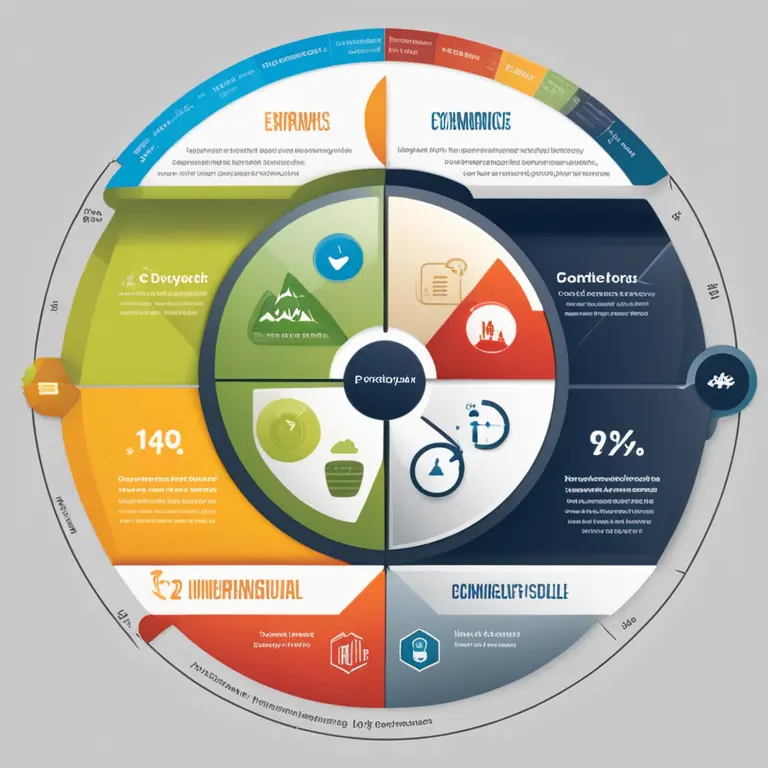
The Rhythms Within: Interpreting Biorhythm Cycles
Delve into the concept of biorhythms and learn how these natural cycles influence various aspects of your daily life.
article by Adrian Wallace
Introduction to Biorhythms
Biorhythms are an intriguing aspect of human physiology believed to affect our physical, emotional, and intellectual well-being. The theory of biorhythms postulates that from the moment of birth, we are influenced by natural cycles that ebb and flow throughout our lives. These cycles are often split into three primary components: the 23-day physical cycle, the 28-day emotional cycle, and the 33-day intellectual cycle. These cycles are thought to rise and fall in a sinusoidal pattern, influencing our abilities and moods. While scientific consensus on biorhythms varies, many individuals find value in tracking these patterns for personal awareness and growth.

Physical Biorhythm Cycle
The physical biorhythm cycle, which lasts approximately 23 days, is said to govern our vitality, strength, and overall endurance. During the positive phase of this cycle, individuals may feel more energetic and physically robust, potentially enjoying a boost in productivity and physical performance. Conversely, during the negative phase, there might be a noticeable decline in physical stamina, prompting a greater need for rest and recovery. Distinct from medical advice, tracking one's physical biorhythm can provide additional insights into the best times for engaging in sports or strenuous activities.

Emotional Biorhythm Cycle
The 28-day emotional biorhythm cycle is believed to influence our feelings, moods, and emotional stability. When this cycle is in an upward trend, one might experience heightened emotional clarity and positive moods. This can be seen as an optimal time for activities that require emotional investment or for strengthening relationships. On the other hand, during the negative phase, individuals may find themselves more susceptible to emotional turbulence, stress, or irritation. Awareness of this cycle is often used as a tool for anticipating emotional fluctuations and maintaining wellbeing.

Intellectual Biorhythm Cycle
Spanning a 33-day period, the intellectual biorhythm cycle is associated with cognitive functions, such as analytical thinking, problem-solving, and memory. When on the upswing of this cycle, mental acuity is reportedly at its peak, potentially favoring learning and critical thinking. In times where the cycle is waning, one might encounter difficulties in concentration or clarity of thought. Professionals and students alike might use their intellectual biorhythm as a guide for planning mentally demanding tasks or study schedules.

Calculating Your Biorhythms
In the digital age, calculating one's personal biorhythm cycles has become more accessible than ever. Numerous online calculators and mobile applications exist, designed to provide users with a graphical representation of their biorhythmic state on any given day. To make use of these tools, one simply enters their date of birth, and the software does the rest. However, it is essential to approach biorhythm analysis with an open mind and to consider its findings as one of many factors potentially influencing daily life.
Implications and Considerations
While biorhythms offer a captivating way to reflect on personal energies and performance variables, it's important to acknowledge scientific scrutiny regarding their validity. As of 2024, the empirical support for biorhythms influencing behavior is not robust. Regardless, many people find personal value and empowerment in considering these cycles. As with any self-analytical practice, the key is to balance skepticism with openness, not allowing biorhythmic interpretations to override common sense or medical advice.
Published: 1/25/2024
Modified: 1/25/2024
More predictions
Come back here soon to learn more about yourself and your future


The Basis of Biorhythms: Biological Cycles Explored
Delve into the foundations of biorhythms and discover how these natural cycles influence our daily lives and well-being.


The Intersection of Biorhythms & Astrology Explored
Discover the link between biorhythms and astrology to gain insights into your life's patterns and potential.


The Biorhythm Debate: Effective Insight or Myth?
Discover the realities behind biorhythms, how they're calculated, and their impact on daily life. Can these biological cycles truly predict our physical, emotional, and intellectual states?